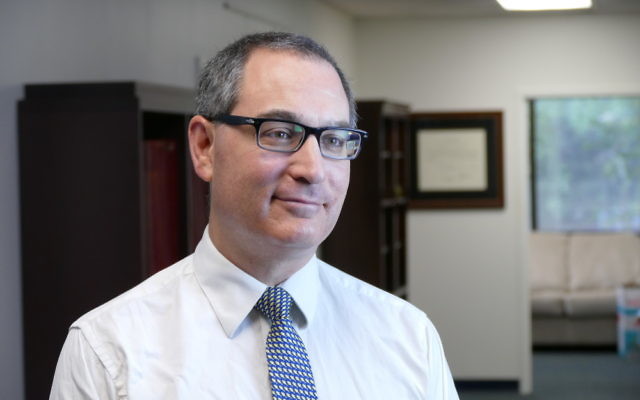Editors Notebook: Paradise by the Pokemon Light
On Saturday night, Aug. 13, while many of us were turning to the Book of Lamentations for Tisha B’Av, the saddest day on the Jewish calendar, people in Milwaukee seemed intent on adding to the list of sorrows with protests that boiled over into riots.
A black man was killed by police, and this summer no other details, such as the fact that the man was armed and that the cop who killed him is black, make any difference.
Young black people unleashed their anger and frustration on property, police and reporters. Shots were fired. Fires were set. Nasty things about beating white people were said.
Some 24 hours earlier and almost 700 miles south of Milwaukee, my family and I were out for an after-dinner stroll to burn off some of the excessive calories we had consumed and to get a feel for downtown Huntsville, Ala.
It was warm but pleasant, and midnight approached as we followed the sounds of people down a set of stone stairs and found ourselves wandering into Big Spring Park. In this summer of anger and violence, we might as well have been walking into paradise.
Families, couples and singles, from toddlers to retirees, representing a mix of races, ethnicities and probably religions, congregated near the spring. Some sat. Some wandered. Some, tired from helping a college freshman move into his dorm that afternoon, found a quiet place to lie down and stare at the stars (or perhaps take a nap).
I’m told that the park, built around the city’s original water source, is the usual place to hang out in Huntsville, and maybe it’s just one of those areas where people always come together in peace, harmony and good cheer, regardless of the anger and turmoil roiling other cities’ streets.
But on this night it wasn’t Southern friendliness that enabled black and white and everything in between to coexist in a downtown park; it was “Pokemon Go.”
The smartphone game has been a pop-culture phenomenon, and it has received more than its share of know-nothing jokes, criticism and harrumphing from those (like me) who don’t play and don’t understand the excitement of seeing an anime creature pop up in a virtual representation of your kitchen or front yard or swimming pool.
The U.S. Holocaust Memorial Museum and Arlington National Cemetery are among the solemn sites that have complained about people wandering around with their faces in their phones, causing disruptions.
The Washington Post just reported on Occoquan, Va., a quaint colonial river city south of the nation’s capital that is overrun by players at all hours because it has a rare concentration of Pokemon. Good news for small business; a bummer for people who like to sleep at night.
But here’s the thing: The augmented reality of “Pokemon Go” has no room for the dark side of our actual reality. There’s no racism or sexism or other discrimination. There’s no crime or death. Anyone can play and enjoy the game.
And while toddlers, teens, young adults and not-so-young adults have their faces in their smartphone screens — overlooking the same hazards as people texting or streaming videos while walking — they don’t have the chance to notice whether the other players are Hispanic or Asian, black or white.
“Pokemon Go” might be silly and obsessive, but it’s also a positive force in society. At a time when too many activists and would-be leaders want to emphasize what divides us, Pikachu, Charmander and friends can bring us all together.





comments